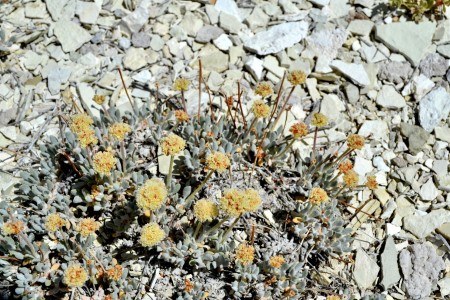By Ernest Scheyder
(Reuters) – The Biden administration on Thursday published a key environmental report for ioneer’s Rhyolite Ridge lithium mine in Nevada, the last step needed before approving what would become one of the largest U.S. sources of the electric vehicle battery metal.
The move comes after a review process of more than six years and as part of Washington’s ongoing efforts to boost domestic critical minerals production and offset China’s market dominance. If approved, the mine would be the first lithium project permitted by Biden officials.
The U.S. Bureau of Land Management (BLM) published a final environmental impact statement that sets in motion a review period of at least 30 days before a record of decision – essentially a mine’s permit – can be issued. The BLM also published an opinion on how a rare flower at the mine site can best be protected.
Shares of ioneer trading in New York jumped 11% on Thursday morning.
The proposed mine, roughly 225 miles (362 km) north of Las Vegas, contains one of North America’s largest sources of lithium and could produce enough of the metal to power roughly 370,000 EVs each year. Ford Motor signed a binding supply agreement in 2022 with ioneer.
CRITICAL MINERAL
The U.S. Geological Survey has labeled lithium a critical mineral vital for the U.S. economy and national security. As part of a push to boost domestic production, the U.S. Department of Energy last year said it would lend ioneer up to $700 million to develop the mine.
The site is also home to the Tiehm’s buckwheat flower, which is found nowhere else on the planet and was declared an endangered species in 2021. Some conservation groups thus oppose ioneer’s project, making it a lightning rod in the debate over whether biodiversity matters more than the fight against climate change.
The BLM said on Thursday that it worked with the U.S. Fish and Wildlife Service and the company to craft “significant protections for the plant,” including changing mine design plans and a formal protection plan.
“We’re steadfast in our commitment to be responsible stewards of our public lands as we deliver the promise of a clean energy economy,” said BLM director Tracy Stone-Manning.
The 30-day review process for the environmental report is a routine part of the federal permitting process.
Bernard Rowe, ioneer’s CEO, said the report reflects the company’s willingness to work with the government to protect the flower and develop a domestic source of lithium.
“It’s a testament to the approach that we took, and that was one of engagement, addressing the sensitive issues, seeing if we can come up with solutions. And we’ve done that,” Rowe told Reuters.
The mysterious death of more than 17,000 flowers near the mine site in 2020 sparked allegations from conservationists of a “premeditated” attack. Australia-based ioneer denied harming the flowers. The U.S. government later blamed thirsty squirrels.
South Africa’s Sibanye Stillwater agreed in 2021 to buy half of the project for $490 million, but only once ioneer obtains final permits.
(Reporting by Ernest Scheyder; Editing by Conor Humphries)


